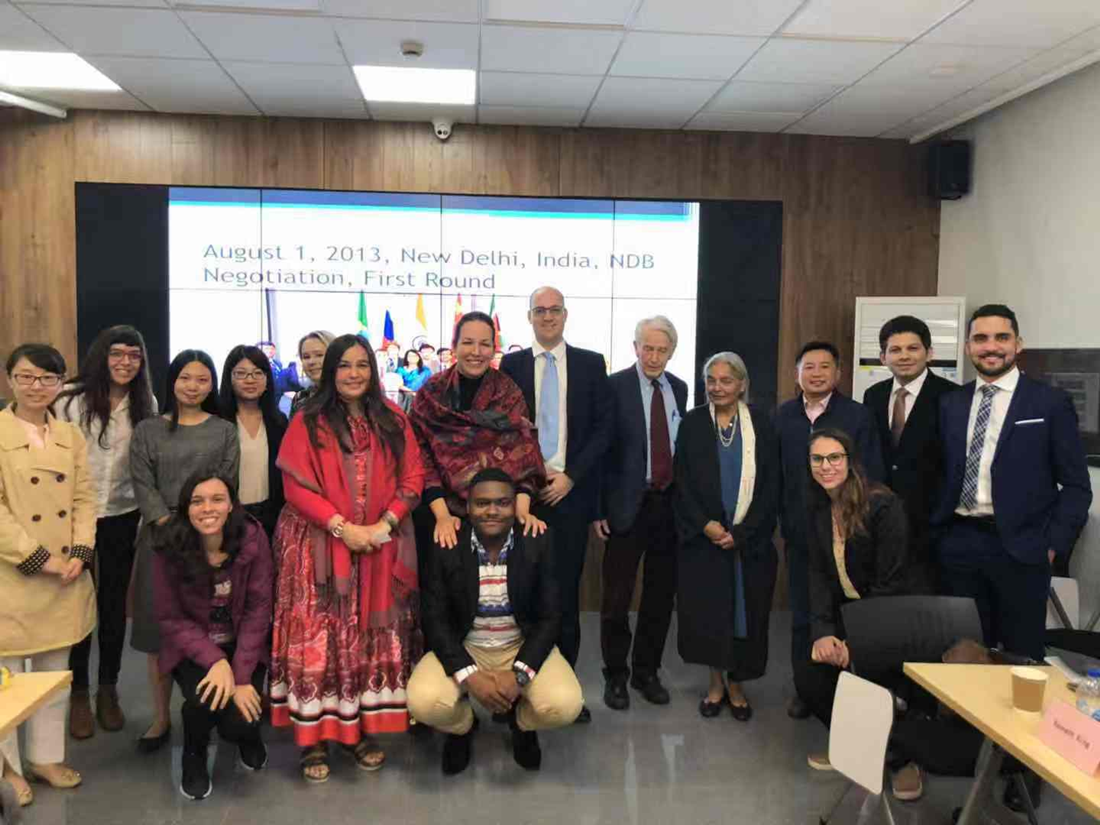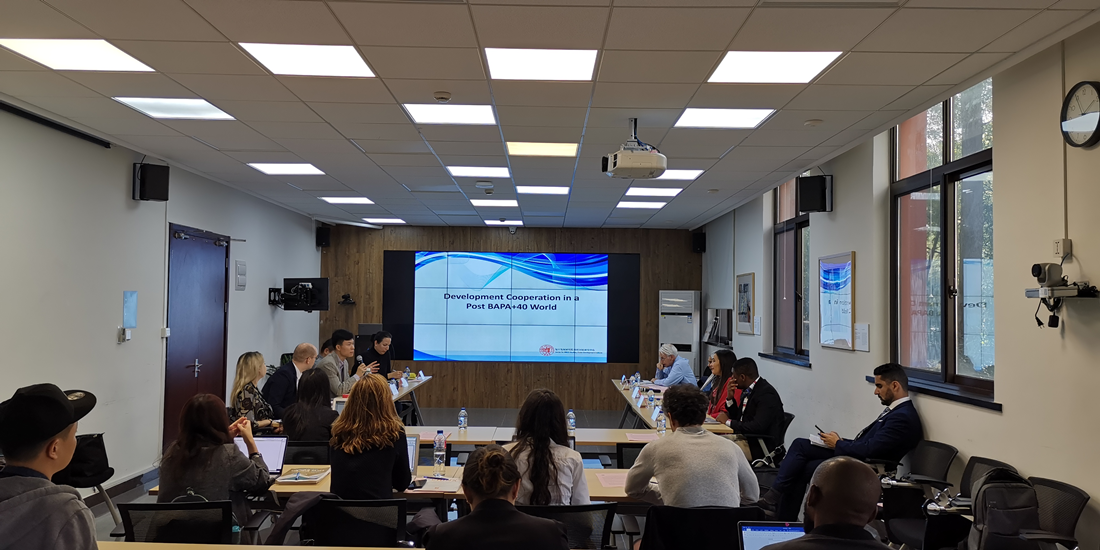Author: Release date:2019-11-06 11:19:38Source:发展研究院英文
On October 28, 2019, the Center for BRICS Studies at Fudan University, Fudan Development Institute, hosted the workshop “Development cooperation in a post BAPA +40 world.” The workshop was organized by Professor Karin Costa Vazquez, Fudan Scholar at the Center for BRICS Studies and Assistant Dean at O.P. Jindal University, India. Over 15 scholars from Chinese and foreign universities and research institutions discussed the future of development cooperation post the 2nd United Nations High-Level Meeting on South-South Cooperation (also known as BAPA+40) and the role of BRICS countries in implementing the 2030 Sustainable Development Agenda and attaining the Sustainable Development Goals.

Professor Jing Yijia, Vice-Dean of the School of International Relations and Public Affairs at Fudan University, delivered the opening keynote speech. He highlighted that in a context where the international political economy is being shaped by emerging countries, the term ODA (official development assistance) can no longer describe international assistance, meet the needs of development actors nor reflect their cooperation practices.
Artemy Izmestiev, Policy Advisor at UNDP Seoul Policy Center gave a background of BAPA+40 and some of the main challenges ahead for the implementation of its outcome document. According to Izmestiev, understand and conceptualize South-South cooperation remains a universal challenge. Nevertheless, there is growing awareness on the need to adapt the measures and methodologies to assess these relations.

In 2019, Fudan scholars proposed a new concept for development cooperation: New Development Assistance (NDA). NDA offers an alternative to official development assistance (ODA), but there are still practical challenges to its full realization. Participants also discussed development of BRICS and South-South cooperation", "New multilateral development banks and Developing countries” and “How to implement of pragmatic cooperation to promote 2030 development agenda”.

“We must review and deepen the practical significance of foreign assistance and countries’ contribution to the 2030 development agenda through SSC,” said Professor Vazquez. The workshop should contribute to this process as well as signal a research agenda the participants of the workshop and others can develop jointly or in their own research.